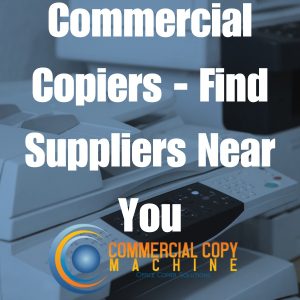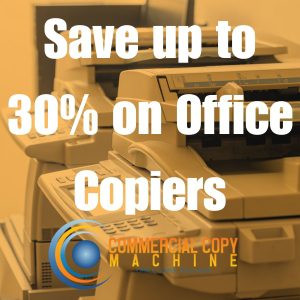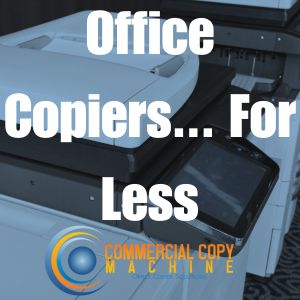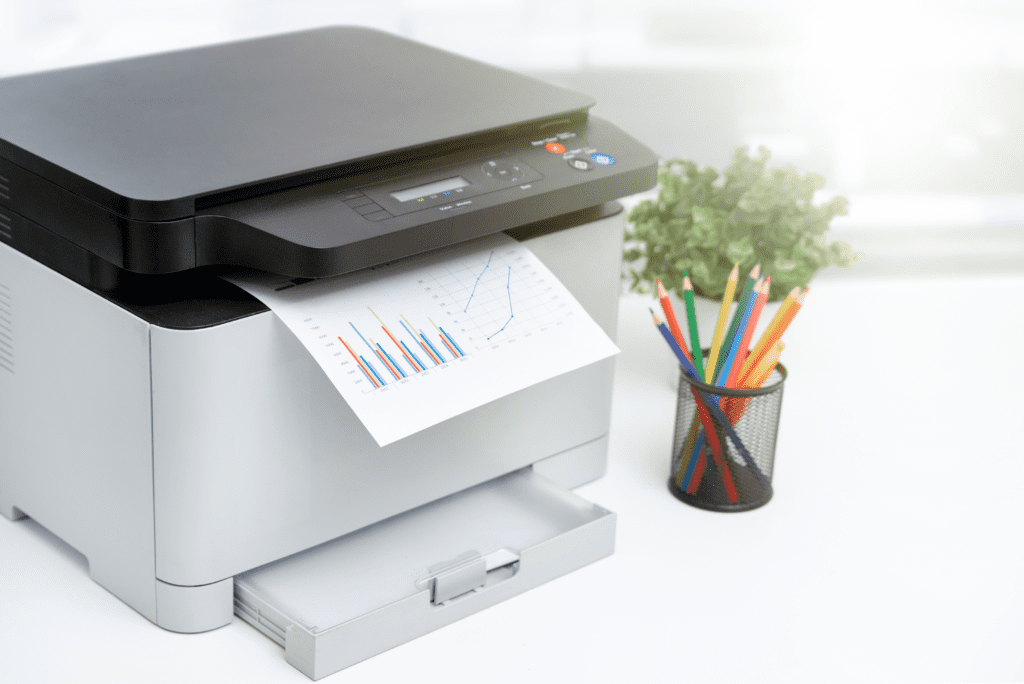Everything Businesses Need to Know About Leasing Office Copiers
In today’s fast-paced office environments, copiers play a crucial role in daily operations, from printing and scanning to faxing documents. For many businesses, leasing office copiers has become a preferred option over purchasing them outright due to the flexibility, cost-effectiveness, and access to the latest technology that leasing provides. This blog explores everything businesses need to know about leasing office copiers, offering insights into making an informed decision that aligns with their operational needs and financial goals.
Understanding Copier Leasing
Leasing office copiers involves entering into a contract with a leasing company to use the equipment for a predetermined period. This section will differentiate between operational and capital leases, discuss typical lease durations, and outline common terms, providing a foundational understanding of how copier leasing works.
Benefits of Leasing Office Copiers
Leasing offers several advantages, including improved cash flow management, access to the latest copier technology without a significant upfront investment, and hassle-free maintenance and support. Additionally, leasing may offer tax benefits, as lease payments can often be deducted as business expenses. This section will delve into each of these benefits, highlighting how they can contribute to a business’s operational efficiency and financial health.
Evaluating Your Business Needs
Before deciding to lease a copier, it’s important for businesses to assess their specific needs, including the volume and type of copying required, the copier’s size, and necessary features. Scalability and the ability to upgrade technology as needs evolve are also critical considerations. This section will guide businesses in conducting a needs assessment to ensure they choose a copier that meets their current and future requirements.
Cost Considerations
Understanding the costs associated with leasing office copiers is vital. Beyond the monthly lease payments, businesses need to consider maintenance contracts, the cost of supplies, and the total cost of ownership (TCO). Additionally, this section will cover potential hidden fees and what businesses should watch out for to avoid unexpected expenses.

Choosing the Right Leasing Company and Copier Model
Selecting the right leasing company and copier model requires careful consideration of several factors, including the company’s reputation, the range of copier models offered, and the flexibility of lease terms. Comparing different models and brands, as well as negotiating lease terms, are essential steps in this process. This section will offer tips for making these crucial decisions.
Lease Agreement: Key Components and Reading the Fine Print
The lease agreement is a critical document that outlines the terms of the copier lease. Understanding important clauses, such as maintenance and service terms, early termination conditions, and end-of-lease options, is crucial. This section will guide businesses in reviewing and negotiating their lease agreements to ensure favorable terms.
Leasing office copiers offers businesses a flexible and cost-effective solution to meet their copying needs without the hefty investment of purchasing equipment outright. By carefully evaluating their needs, understanding the costs involved, and choosing the right leasing company and equipment, businesses can benefit significantly from leasing. This blog has provided a comprehensive overview to aid businesses in making informed leasing decisions, emphasizing the importance of thorough consideration and due diligence in the process.


Comparing Leasing and Buying Office Copiers
In the realm of office equipment management, the decision to lease or buy copiers is significant, impacting not just the financial books but also how a business operates daily. Below, we’ll break down the essentials of each option, providing a comprehensive comparison.
Initial Cost Outlay
- Leasing: One of the most compelling advantages of leasing is the minimal initial financial outlay. Companies avoid the substantial upfront cost of purchasing a copier outright, which can be particularly advantageous for small to medium enterprises (SMEs) or those looking to preserve cash flow for other investments.
- Buying: Purchasing a copier requires a significant upfront payment but results in outright ownership of the equipment. For businesses with sufficient capital, this investment eliminates monthly lease payments, potentially leading to lower long-term costs.
Technology Upgrades and Obsolescence
- Leasing: Leasing copiers allows businesses to upgrade to newer models at the end of the lease term, ensuring access to the latest technology without additional investment. This approach is ideal for companies that prioritize staying at the forefront of technology.
- Buying: When purchasing, a business owns the equipment and must decide when to invest in new technology. The risk of technological obsolescence is higher, as replacing outdated equipment requires another significant outlay.
Maintenance and Repairs
- Leasing: Most lease agreements include maintenance and repair services, ensuring that any issues are promptly addressed without additional costs. This can offer peace of mind and predictability in budgeting for operational expenses.
- Buying: Ownership means the business is responsible for all maintenance and repair costs once any warranties expire. While this provides control over service providers and parts, it can lead to unpredictable expenses.


Tax Implications
- Leasing: Lease payments are generally deductible as business expenses in the year they are paid, providing a tax advantage by lowering the taxable income of the business.
- Buying: Purchasing a copier allows businesses to capitalize the asset and depreciate it over its useful life, offering tax deductions over several years. The immediate tax benefit might be less compared to leasing, but it provides long-term advantages.
Cash Flow Management
- Leasing: Leasing supports better cash flow management by spreading the cost of the copier over its usage period through fixed monthly payments. This can help businesses manage their budget more effectively and allocate resources to other strategic investments.
- Buying: Although buying requires a larger initial expenditure, the absence of monthly payments frees up cash flow in the long run. For businesses with sufficient upfront capital, this can be a financially viable option.
Situational Considerations
- Business Growth and Scalability: For rapidly growing businesses, leasing offers the flexibility to upgrade equipment in response to increasing demands without significant capital investment.
- Operational Requirements: Businesses with stable and predictable copying needs might find purchasing a cost-effective solution in the long term.
- Financial Strategy: Companies focused on building assets and minimizing liabilities may prefer to purchase, while those aiming for flexibility and minimal upfront expenses might lean towards leasing.
Deciding whether to lease or buy office copiers depends on a variety of factors, including financial strategy, operational needs, and long-term planning. Leasing offers flexibility, access to the latest technology, and predictable budgeting for maintenance and upgrades. Buying, on the other hand, provides ownership, potential long-term savings, and tax depreciation benefits but requires a significant initial investment and management of maintenance.


Businesses must weigh these considerations carefully, aligning their decision with their operational objectives and financial health. Whether opting to lease or buy, the choice should support the company’s broader goals, ensuring efficient operations and strategic resource allocation.
Financial Planning and Budget Allocation
When considering leasing versus buying, financial planning takes center stage. Businesses must assess their current financial health and forecast future needs, considering:
- Capital Expenditure (CapEx) vs. Operational Expenditure (OpEx): Buying copiers is a CapEx, requiring upfront investment and affecting the balance sheet. Leasing, an OpEx, offers a pay-as-you-go model that can be more manageable and less impactful on financial statements.
- Return on Investment (ROI): The ROI of purchasing a copier may become apparent over time through the absence of lease payments. However, leasing can offer a better ROI when considering the value of staying up-to-date with the latest technology and included maintenance services.
Assessing Total Cost of Ownership (TCO)
The TCO is a critical factor in the lease versus buy decision. It encompasses not just the purchase or lease costs but also long-term expenses such as:
- Maintenance and Supplies: Regular maintenance and the cost of supplies like toner and paper can add significantly to the TCO.
- Downtime and Efficiency: The potential downtime with older purchased equipment and the efficiency gains from newer leased technology can impact productivity and operational costs.
- End-of-Life Disposal: Owning equipment necessitates managing its disposal or resale, which can incur costs or, conversely, provide a modest return.



Future-Proofing and Scalability
Technology in the office equipment sector continues to advance, with new features that enhance efficiency, security, and environmental sustainability. Leasing offers the flexibility to adapt and scale:
- Adaptability: Leasing allows businesses to respond to changing technology and operational demands without being tied to outdated equipment.
- Scalability: As a business grows, its copier needs may change. Leasing facilitates scaling up (or down) without the financial penalties associated with disposing of owned equipment.
Environmental Considerations
Sustainability is becoming a priority for businesses globally. Leasing and buying have different implications for a company’s environmental footprint:
- Leasing: Regular upgrades ensure access to the most energy-efficient and environmentally friendly models. Additionally, leasing companies often offer recycling programs for used equipment.
- Buying: While buying can lead to longer use of each machine, potentially reducing waste, it may also mean using less efficient models for longer periods.
The Role of Managed Print Services (MPS)
For businesses considering leasing, MPS offers a comprehensive approach to managing all aspects of a company’s printing and copying needs. MPS can include:
- Assessment and Optimization: Analyzing a business’s current print environment and needs to recommend the most efficient and cost-effective solutions.
- Fleet Management: Overseeing all aspects of the print fleet, from maintenance to supply replenishment, ensuring optimal performance and minimal downtime.
- Security and Compliance: Implementing solutions to protect sensitive information and ensure compliance with data protection regulations.
Making an Informed Decision
The decision to lease or buy office copiers should be informed by a thorough analysis of a business’s current and future needs, financial considerations, technological advancements, and environmental impact. Consulting with industry experts and gathering quotes from multiple vendors can provide valuable insights and help businesses make the best choice for their specific circumstances.
In 2024, the landscape of office equipment management continues to evolve, influenced by technological advancements, financial strategies, and a growing emphasis on sustainability. Whether leasing or buying, the decision should align with the business’s operational requirements, financial objectives, and long-term goals. By carefully considering the pros and cons and staying informed about the latest trends and services, businesses can ensure their copier strategy enhances productivity, supports financial health, and contributes to a sustainable future.

